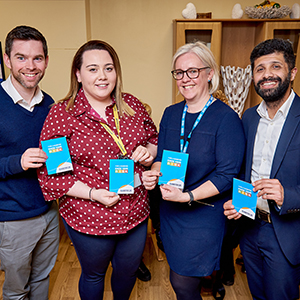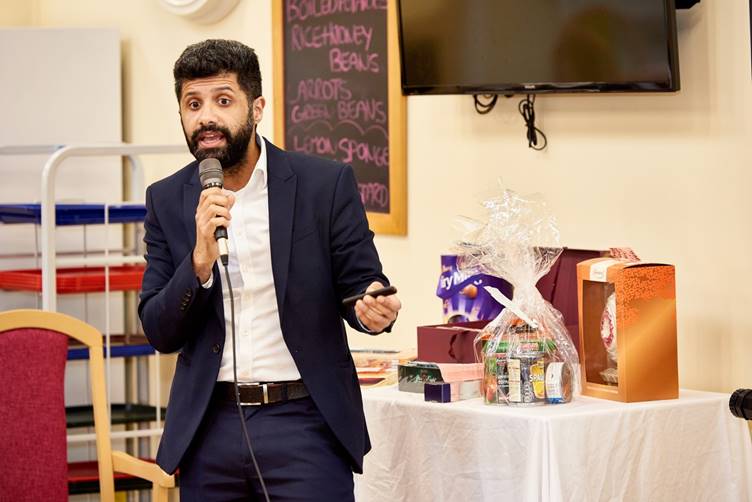Keeping patients with diabetes healthy during Ramadan
 Mohammed Satar, GP Partner in Yorkshire, and Leisa Batkin, Locality Facilitator at Leeds GP Confederation recently ran a series of ‘Diabetes and Safer Ramadan’ events. They explain how their events are helping people with diabetes to reduce the risks of becoming ill during Ramadan if they decide to fast, as well as highlighting the dangers of fasting for people with diabetes.
Mohammed Satar, GP Partner in Yorkshire, and Leisa Batkin, Locality Facilitator at Leeds GP Confederation recently ran a series of ‘Diabetes and Safer Ramadan’ events. They explain how their events are helping people with diabetes to reduce the risks of becoming ill during Ramadan if they decide to fast, as well as highlighting the dangers of fasting for people with diabetes.
The Qur’an requires Muslims to fast during the month of Ramadan from sunrise to sunset. Whilst there are exceptions to this – one of them being that people who are ill or have medical conditions do not have to fast, including people with diabetes – ultimately, it is a personal choice whether or not to fast.
For the next few years, Ramadan in the UK is in the late spring months and the lengths of fasts are long. Long fasts put a person with diabetes at higher risk of hypoglycaemia and dehydration.
The inspiration behind the events
Leisa explained:
As well as wanting to work with hard to reach communities to support them to make more empowered decisions, we know that people with diabetes observing Ramadan benefit from counselling on how to manage fasting with their condition.
Mohammed continued:
If people are properly educated, there is less likelihood of hypos and people are more likely to break their fast should they become unwell. There is also some data to suggest that outcomes may improve all year round.
The risks associated with diabetes and fasting
- If a patient has complications associated with diabetes, such as poor vision or heart or kidney disease, the risk of aggravating these is very high and the patient should seriously consider not fasting
- For people with diabetes taking certain tablets and/or insulin, fasting carries the risk of hypoglycaemia. If the patient feels that you are having a hypo, they must break your fast and take some sugary fluids followed by starchy food, in accordance with scripture, as otherwise they will harm your body and may need medical attention
- The patient may develop high blood glucose levels during a fast if you do not take prescribed medication or if you are less physically active than normal, which could lead to diabetic ketoacidosis (DKA) – a serious condition requiring hospital treatment.
The events: A resounding success
Mohammed said:
We has a great turnout from a broad range of healthcare professionals including Pharmacists, Practice Nurses, GPs, voluntary organisations, NHS Diabetes Prevention Programme colleagues, Leeds GP Confederation, Leeds City Council, Public Health colleagues and 30+ people with diabetes too.
On marketing the events and encouraging attendance, Leisa added:
We promoted the events through word of mouth, GP engagement with patients, local news and radio stations, text messages to patients, social media, printed materials in council and primary care buildings and third sector engagement events.
Lessons learnt for future diabetes and Ramadan events
- Get a local mosque involved to help promote the events
- Use an interpreter to encourage real conversations in multiple languages
- Share in the eating of food as that is when the best conversations happen
- Choose a familiar venue within the community
- Collaborate with health, public health and local authority colleagues and meet regularly
- Any cooking should be culturally relevant (for example soup is not usually a staple of Pakistani diet)
- Get in touch with your local CCG communications team who can support the events – ours had a photographer come along to help with marketing
- Attend a diabetes and Ramadan event to learn about latest guidance i.e the South Asian Health Foundation annual event in London
Helpful resources
A number of resources and materials were shared at the events. You can download these via the following links:
- Fasting with diabetes during Ramadan leaflet
- South Asian Health Foundation good health resources
- Managing diabetes during Ramadan factsheet
For more information on the events and any of the above, contact mohammed.sattar@nhs.net or leisa.batkin@nhs.net.

